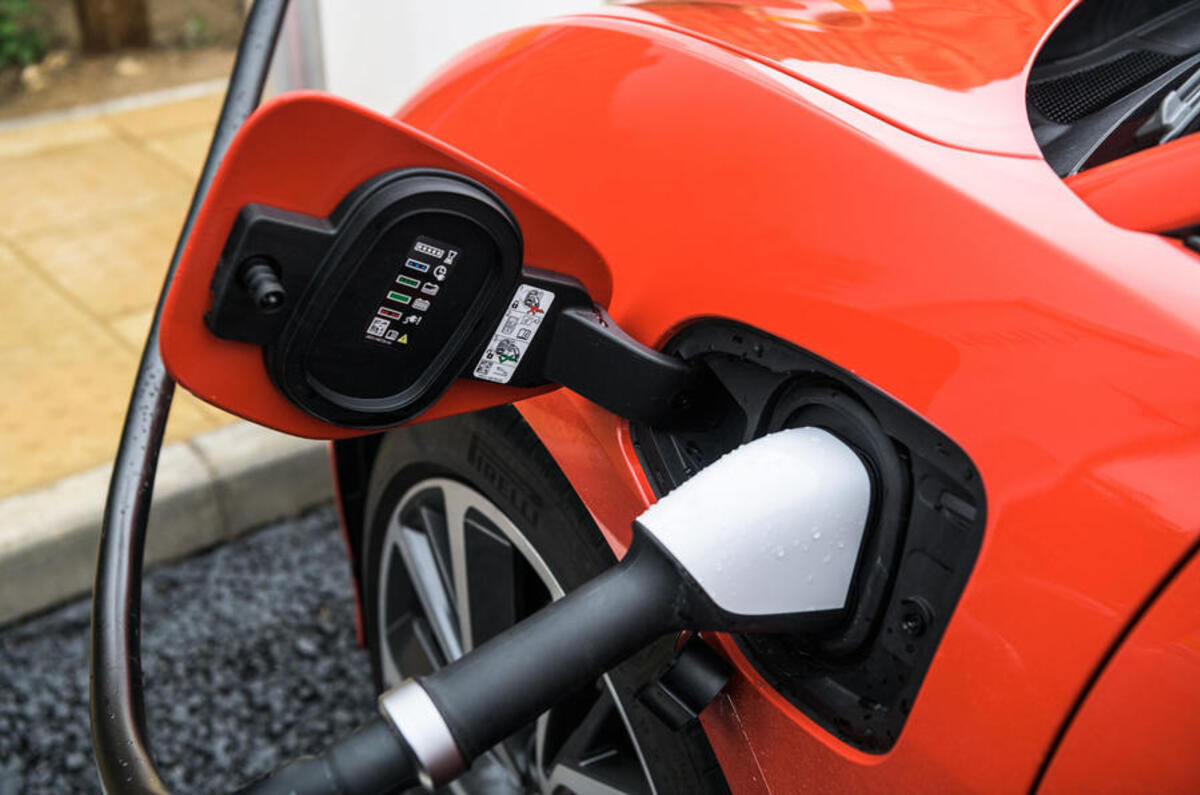Ford, Jaguar Land Rover, Mercedes-Benz, GM and Volvo are among the car firms who have backed a pledge made at the COP26 climate conference to eliminate new car emissions by 2040 – but most of the world’s largest manufacturers and a number of key countries haven’t backed the deal.
The declaration was agreed by attendees at the United Nations climate summit in Glasgow and aims to help accelerate the transition to zero-emission vehicles. The non-binding pledge has been signed by groups including national, regional and local governments, car makers, fleet and mobility operators and investors in automotive manufacturers.
In the pledge, automotive manufacturers agree to “work towards” selling only fully zero-emission new cars and vans in “leading markets” by 2035 or sooner.
The governments who have signed the deal, which include the UK, have agreed to do the same by 2035 in leading markets, and 2040 elsewhere. The UK has already committed to achieving this by 2035.
However, most of the world’s leading car firms – including the BMW Group, Renault Group, Hyundai Motor Group, Stellantis, Toyota and the Volkswagen Group – have not signed the deal, despite months of negotiation taking place.
China, France, Germany and the US were among notable countries that did not sign the pledge, although a number of US states and cities did.
The Financial Times has reported that the failure of China, Germany and the US to back the pledge was a key reason some of the motor manufacturers declined to, along with concerns about the speed of transition to zero-emission vehicles in several markets.
The car firms that have signed the deal are Avera Electric Vehicles, BYD Auto, Etrio Automobiles, Ford, Gayam Motor Works, GM, Jaguar Land Rover, Mercedes-Benz, Mobi, Quantum Motors and Volvo Cars.








Join the debate
Add your comment
I dont blame these manufacturers for not signing the agreement....its far from clear that BEV IS the way to go for the future. Could be another ridiculous railroading of the industry into a misguided knee-jerk reaction. Lets face it, the Uk government hardly knows its arse from its elbow (whoever is in power), it could be another diesel type F***-up, and its advisors are mostly those with a private agenda (EV related).
No, Hydrogen and synthetic fuels could still be the better solution, so why commit yourself to billions of pounds/euro's/dollars to put all your eggs in one basket.
The suggestion to restrict availability of fuel by LP is so ridiculous as to be laughable.
What about trucks and tractors...not to mention the millions of existing cars on the road which are not all going to be taken off the roads in 2035 when the new car ban commences.
The article is misleading, the pledge is ZERO emissions, not EV only.
Yes, thats understood citytiger. But many OEM's may feel that Hybrid might be a holding pattern until we know the likely best solution between the three....or a mix of the three.
By voting with our wallets we can drive this transition ourselves. If enough people buy EVs then the companies that don't produce enough of them will suffer or go out of business. Similarly if we stop buying petrol it will impact the oil companies and the petro-states. In the UK in September and October, we're already at 15% of new car sales being EV and it's growing fast. In terms of new vehicles, it could be all settled in Europe in a few years if the pressure continues.
What elitist nonsense, not everyone can afford to shell out thousands of pounds on an EV, millions have no way of charging them, because they dont have access to off street parking to plug them in, if companies go out of business, millions could become unemployed, the companies that support the motor industry, the parts suppliers etc would also suffer. Perhaps you need to go and glue yourself to a motorway to make your feelings felt.
EVs depreciate too: the unaffordable £40k new EV of 2021 becomes the relatively attainable £15k second hand EV of 2026 and the very reasonable £5k run around of 2031, by which time plenty of public parking spaces will have charging points.
@ nicktod
By 2031 Nick, old 'cheap' EV's may actually be worthless due to the potential cost of replacing knackered batteries.
Cant see anyone of modest means placinng their hard earned £5k into such a potential money pit.
Why bother to sign up to Cop26 which is already a failure just like the Paris Agreement before it. If Cop26 isn't legally binding then car manufacturers can say whatever they want and not be held accountable to it.